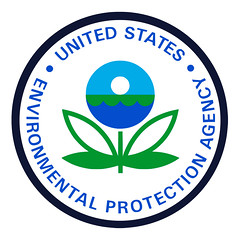September 5, 2021
-Watts Up With That
Under the category you can’t make this stuff up, the September 3, 2021 Federal Register included a notice of a proposed settlement agreement, enforcement action alleging air pollution violations for the US Environmental Protection Agency’s Edison New Jersey facility. The federal agency responsible for compliance with environmental regulations did not comply with New Jersey boiler and emergency generator regulations.
According to the Federal Register notice:
“In November 2019, New Jersey conducted an inspection of EPA’s Edison facility and found several state law violations regarding EPA’s boilers and emergency generators. Based on
this inspection, and further information provided by EPA, New Jersey alleged the following types of violations:
- Failure to seek new general permits when the boilers and emergency generators were replaced;
- Operating the boilers and emergency generators with expired general permits;
- Operating one emergency generator on five bad air days;
- Operating one boiler on one bad air day; and
- Improper tune-ups and/or tune-up report submission for two boilers.”
EPA delegates the responsibility to inspect facilities to the states upon approval of implementation plans. On a regular basis inspectors show up at the facility and go through the permits and records to make sure everything is being done correctly. It appears that during the inspection when the boiler and emergency generator specifications were compared to the existing permits there was a discrepancy. I can only imagine the consternation of the folks at EPA when it became obvious that someone had overlooked the rules. This ended causing two violations: one for not getting a new permit and one for operating under an expired permit. Those are paperwork violations that cause no harm to the environment.
However, the inspection also found that EPA was not operating the units correctly and that does harm the environment. In non-attainment areas, facilities are required to not operate emergency generators unless absolutely necessary on “bad air days”. I am not sure exactly how “bad air days” are defined but I believe they are days when either the observed or projected air quality is close or exceeds a national ambient air quality standard. In this instance it almost certainly represents nitrogen oxides emissions and the ozone ambient air quality standard. Therefore, EPA could have contributed to a violation of the ozone standard.
In addition, facilities are required to maintain their emission sources and pollution control systems. For a building boiler and emergency generator this requirement usually consists of regular tune-ups. EPA did improper tune-ups so they violated this requirement. In addition, because they did not report them correctly the presumption is that they did not do them correctly.
The Federal Register notice explains what happened once the problem was identified:
“EPA worked with New Jersey to bring the boilers and generators back into full compliance by the end of 2020. These steps included: (1) Obtaining new general permits, and setting up an
internal calendar to better track when to seek permit renewals; (2) changing a generator setting to require that generator testing be started manually, to avoid automatic startup on bad air days; (3) creating and revising a log sheet to ensure that staff check on ‘‘bad air day’’ status prior to testing the emergency generators; (4) conducting the 2020 tune-up using an outside contractor, with EPA staff attending for training purposes; and (5) submitting the 2020 tune-up reports via a New Jersey online reporting system.”
In order to resolve the problem, the notice says:
“EPA and New Jersey have now tentatively agreed on a proposed settlement agreement that would fully resolve the identified state law violations through payment of a $8,600 penalty, a penalty which would rise to a full penalty of $17,200 if EPA failed to pay that penalty on time. To the extent the alleged violations may have constituted violations of the CAA, EPA and New Jersey agree this proposed agreement would also constitute settlement of any claims New Jersey could have made under the CAA.”
In my experience on the industry side of air quality compliance this kind of thing occasionally happened. Invariably it occurred when one side of the organization did not bother asking the in-house environmental professionals if there were any considerations when installing new equipment. I had an instance when hosting an inspector where the facility was dumping waste outside with nothing to receive the material. I think he was impressed that I was more upset than he was about the easily correctable problem. The point is that the resolution of the problem is often up to the whim of the agency.
It is delicious irony that the Federal agency in charge of compliance screwed things up. In this instance there was little environmental harm. The likely greatest impact was embarrassment that the agency failed to comply with the rules that they oversee. Note, however, that if an environmental advocacy organization or a political appointee with a grudge became aware of something like this at an industrial facility, they could blow the impacts out of proportion and demand much higher fines.




